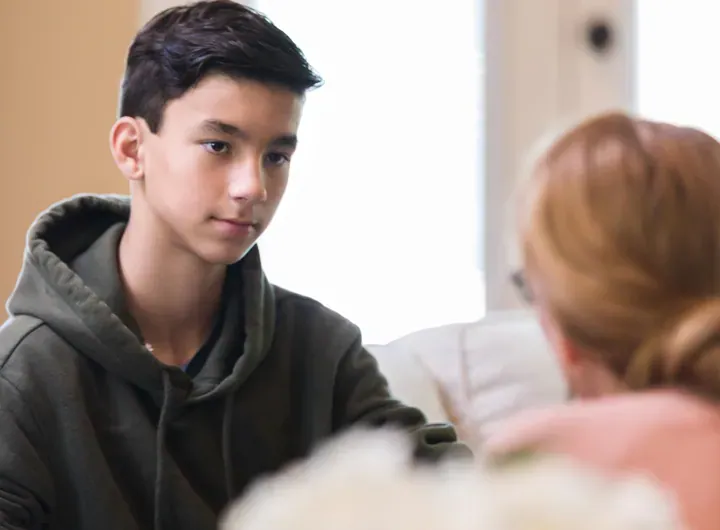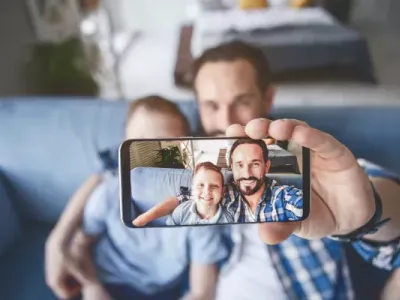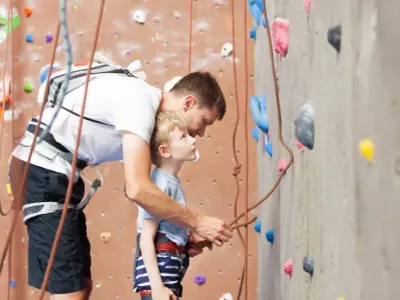Free parenting program helps Queensland children navigate anxiety and fear

Fear-Less Triple P Online – a free parenting program for Queensland parents of children aged 6-14 years old – is offering timely mental health support by helping parents to teach their children how to manage problematic anxiety effectively.
Lead author of the Fear-Less Triple P program and Associate Professor at the University of Queensland’s School of Psychology, Dr Vanessa Cobham, said almost 14% (1 in 7) of Australian children aged 4 to 11 years, experience a mental disorder, with anxiety disorders being the second most common mental health problem experienced by children (and the most common in girls) after ADHD1.
“Some anxiety is normal and actually serves an important purpose in situations than have the potential to be dangerous, such as crossing a busy road,” Dr Cobham said. “But sometimes, anxiety can become a significant problem – causing great distress and interfering in people’s lives; stopping them from doing what they want to do.
“Now more than ever, Queensland parents and children are living with increased levels of anxiety and stress due to the pandemic, with recent research finding that ‘clinically elevated levels of depression and anxiety’ is likely to have doubled in children globally2.
“Triple P International wants to support mums and dads so they can teach their children how to manage anxiety effectively, with easy-to-use strategies that are now available via the Fear-Less Triple P Online program.
“Parents play an important role in helping their children learn how to manage anxiety effectively. Fear-Less Triple P Online helps parents to set a good example of coping with anxiety; coach children to develop effective anxiety management tools and generally become more emotionally resilient; and know how to best support their children when they are anxious,” she said.
“Without that support, we can expect to see a spike in stress and anxiety, which can lead to other psychological problems such as depression, as well as problems at school, in social situations, and with physical health.
“While parents may have concerns about one child in particular, the strategies parents learn in the Fear-Less Triple P Online program can be useful for all the members of the family,” Dr Cobham said. “Indeed, we know that sibling anxiety and overall family functioning also improve for Fear-Less families - changes that are maintained long after parents have completed the program.
Minister for Children, Youth Justice and Multicultural Affairs Leanne Linard said the Queensland Government was proud to fund Triple P International to deliver free parenting support such as the Fear-Less Triple P Online resource. “Raising children is not easy, and Covid-19 has no doubt had an impact on families and young people, but there is always support available for parents and carers,” Ms Linard said.
“We know that the number of children and young people struggling with mental health issues is on the rise, which is why the new Fear-Less Triple P Online resource is so important right now to help parents and carers raise happy, healthy children and teenagers.
“I have no doubt this latest resource will help parents support their children to manage their anxiety more effectively in these challenging times.”
Triple P International Country Director, Carol Markie-Dadds, said Triple P is proud to be partnering with the Queensland Government, who believes in supporting families’ health and wellbeing and has funded free access to the Triple P – Positive Parenting Program® since 2015, for all parents and carers of children under 16, state-wide. This includes free Triple P Online, Teen Triple P Online, and now Fear-Less Triple P Online.
Queensland parents can register for FREE Fear-Less Triple P Online here.
1 Australia Institute of Health and Welfare. (2020). Australia’s children. https://www.aihw.gov.au/reports/children-youth/australias- children/contents/health/chronic-conditions-and-burden-of-disease
2 Racine, N., McArthur, B. A., Cooke, J. E., Eirich, R., Zhu, J., & Madigan, S. (2021). Global prevalence of depressive and anxiety symptoms in children and adolescents during COVID-19: a meta-analysis. JAMA Pediatrics. Published online August 9, 2021. https://doi.org/10.1001/jamapediatrics.2021.2482.

